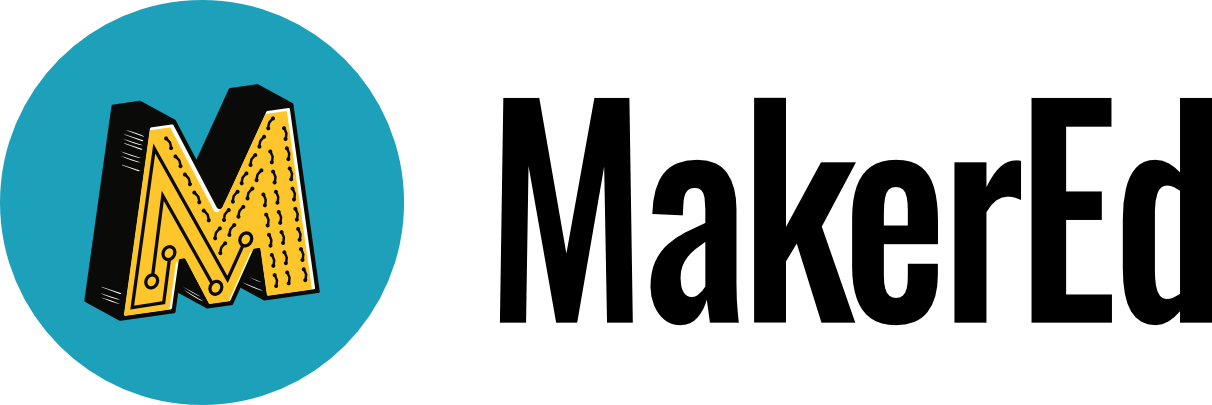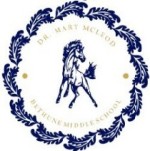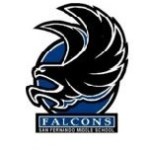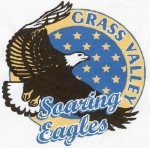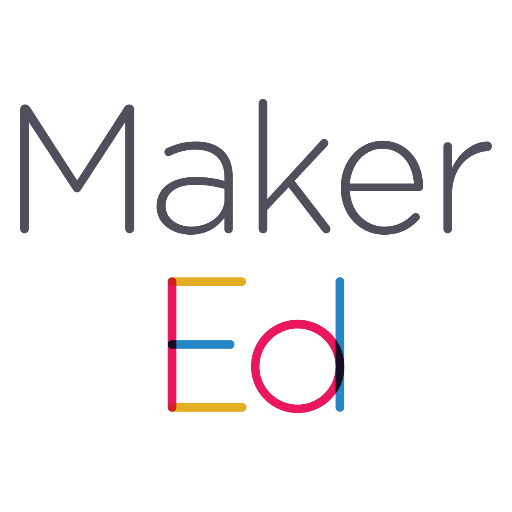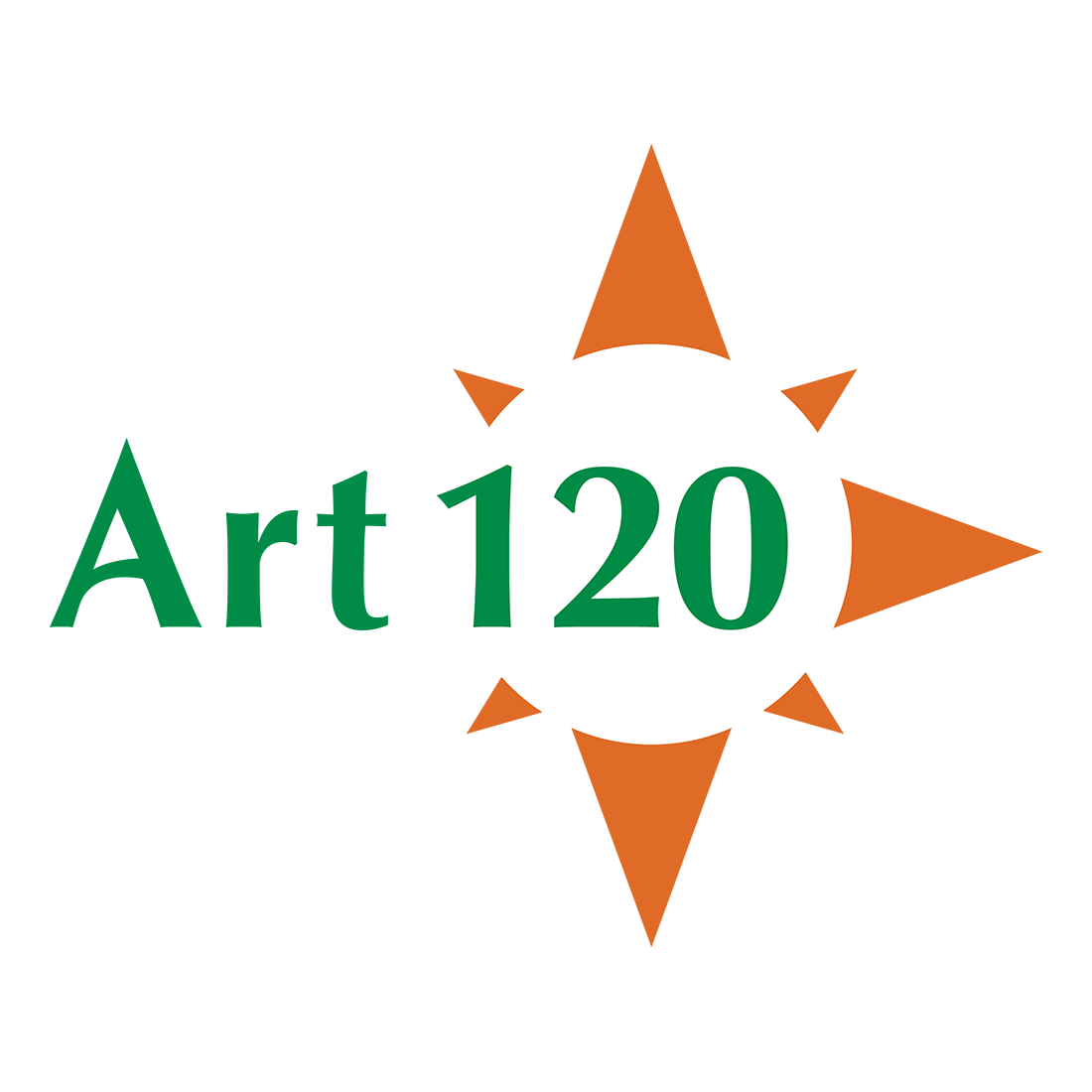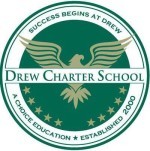Making MAKING Happen Through Maker VISTA
Our Maker VISTA program focuses on overcoming poverty through maker education. Maker VISTA members serve at partner sites around the country to impact organizations and the wider community through partnership development, volunteer recruitment, community building, resource creation, educator training, and much more.
![]()
Bethune Middle School
At Bethune in Los Angeles, Maker VISTA Corina Penaia and Shelly Tersolo are coordinating student preparations for the MESA competition in March. MESA is a statewide program that inspires underserved California students towards fields in science, technology, engineering, and mathematics, and the competitions are mainly maker-oriented. From gathering a hefty inventory of supplies, to brainstorming project ideas with students, to collaborating with teachers on ways to connect project work to curriculum, Shelly and Corina have bolstered Bethune’s students’ capacity to compete and succeed (and have fun!) in the upcoming contests of “EggXpress Egg Drop,” “Stick Together Popsicle Bridges,” and “Mouse Trap Cars.”
Shelly and Corina are also collaborating with teachers on a project stemming from Lukasa memory boards, as a component of their school’s celebration of Black History Month. The Lukasa memory boards are used in Luba culture as part of the oral retelling of history, often including an aspect of song and dance. Students will be given the opportunity to visualize history and share their own narrative by creating their individual memory boards using decorative beads, string, and wood or cardboard.

ReCreate
Maker VISTA Shubha Arehalli helped Grass Valley launch its first Family Maker Night. The event was a remarkable success with over 80 people, adults and children, attending. Families got hands-on with a variety of projects, including stop-motion animation, music and arcade games with Makey Makeys, creating circuit bugs and creatures, painting with Sphero bots, and more! The event successfully engaged new members of the community and encouraged greater support from previous participants, opening up wider avenues for sustainability.
Shubha continued to engage the Roseville community this month through her coordination of unique maker workshops and after-school classes. At an after-school Circuits and Robotics class at Chilton Middle School, Shubha helped introduce students to the Hummingbird Kit, a programmable circuit board with sensors, motors, and LEDs that can be programmed with Scratch. Students were challenged to write a program that could control the lights and motors based on sensor input. As Shubha relates, “when groups saw their programs working, you could feel their excitement.” She is excited to prepare for the Recreate Renewable Energy workshop at Eich Middle School, which is coming up in March, as well as another in-school workshop at Pershing Elementary at the end of this month.
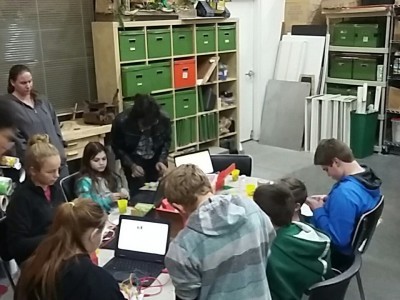
San Fernando Middle School
At San Fernando Middle School, Maker VISTA Lyna Abal is eagerly anticipating receipt of donated 3D printers, iPads, and film equipment after a six month waiting process. She is excited to see how the maker culture of San Fernando will incorporate these new technological flourishes!
In the meantime, though, Lyna is happy to innovate with found natural materials and repurposed recyclables. Recently, she initiated a vertical hanging garden project, in partnership with local partner La Fabrica. Gardens will be planted in recycled plastic bottles connected to one another, with an irrigation system to water the individual bottles. Students are excited to test out which design yields the best growing and watering results, and the school fences will be pleased to benefit from the aesthetic boost provided by these vibrant eco-spaces.
From bottled beautification to buoyancy: another recent maker project led by Lyna featured a moment of frustration blossoming into empowerment. Lyna shares:
A student in our maker elective class had the toughest time building a boat that could with stand 2.5 grams of weight in water. However, after troubleshooting her process with her classmates and myself, she discovered a way to build the boat that was mostly true to the design she had in mind, while still allowing it to withstand in water with the weight. She was ready to give up, and thought it was too hard to continue. But with some push, encouragement and support, she changed her attitude and successfully made it float.”

Computers4Kids
At Computers4Kids in Charlottesville, Virginia, Maker VISTA Blair McAvoy designed and facilitated a Maker Workshop, where she trained C4K’s mentors in what it means to mentor in a makerspace. Using an array of hands-on maker activities, role play exercises, and relatable explanations of maker terminology and technique, Blair provided information, context, defined practices, and was also able to inspire imaginative engagement from the twenty-six C4K mentor attendees. One of those attendees offered Blair post-training feedback: “I’m an engineering student before and have worked in several labs, but I’ve rarely felt this sense of creativity and team reliance. It gave me several ideas for how to approach my project with [my mentee], and made me more cognizant of how I interact with the students.” This first event kickstarts an upcoming and ongoing series of additional workshops and community-building activities for C4K’s mentor team in the months to come.
Following the success of the Maker Workshop with the mentors, Blair tried her hand at replicating one of the challenges she had issued to the mentor trainees, with one of the students at the clubhouse:
The day after, I brought out some junk materials to see if I could get any students to engage with it in the same way as the mentors. There is one student who usually doesn’t want to do anything at all; she will find any excuse she can to just sit there and chat or take Snapchats or whatever else. But when I told her what the mentors did with the junk and asked if she could think of anything cool she could make out of it, she started to pull out pieces and shout “this could be a robot!” or “this could be a pair of glasses!” It was pretty impressive how creative she was. It took a lot more pushing, but, with the help of some of her peers, we did actually build a (non-functional) robot out of the junk.”
*Note: Keep an eye out for a fantastic, thorough write-up authored by Blair, which outlines her process for planning and implementing this mentor Maker Workshop.
Grass Valley Elementary School
For the past few weeks, one of Grass Valley’s first grade students has been consistently visiting our makerspace, eagerly asking to create a light bulb out of recycled Martinelli’s apple juice bottles. She has since started her project, and after just a few days of experimenting and learning more about circuits, she has successfully made a cardboard scepter out of her Martinelli’s bottle (equipped with a light switch and all!).”
In addition to facilitating enlightened, illuminating projects and other “ah-hah!” lightbullb moments in their Wonder Workshop makerspace, Maker VISTAs Crystal Le and Maria Renteria continue to grow, expand, and enliven maker-centered learning in leaps and bounds at Grass Valley Elementary in Oakland.
After several months of Maria’s efforts towards broadening social media channels, compiling marketing and branding guidelines, and creating new forums for sharing news and outcomes, the school website is experiencing increased traffic and its Facebook followers have increased by 83%. Crystal and Maria are most excited about an upcoming sewing class for kindergarteners, and their upcoming African American Innovators Maker Family Night/Heritage Potluck event. Both of these program components are the first of their kind for Grass Valley, and are examples of the maker pathways these Maker VISTAs and their supervisor, Paula Mitchell, are magnanimously paving for their school and community.
Maker Ed
At Maker Ed, Maker VISTA Sam Erwin is trailblazing a first-of-its-kind month-long campaign to highlight the achievements of the Maker VISTA program and further its sustainability through individual donors. In preparation and lead-up, this month Sam presented his plan for the campaign to Maker Ed’s Director of Development, Jakki Spicer, and the Director of Programs, Stephanie Chang. This presentation not only provided an avenue for feedback and organizational support, but also allowed him to practice the skill of channeling and translating his ideas into concrete terms and actions. For Sam, creating the presentation allowed him to experience an “Ah Hah” moment, where everything in his head came together and he felt rejuvenated in the planning process.
In addition to this project, Sam continues to create collateral for the upcoming Maker VISTA recruitment cycle. He is also learning more about grant writing as a whole, and in particular is focusing on researching 11 foundations to delve deeper into finer details of various grant processes, qualifications, and offers.
Ravenswood Makerspace Collaborative
At the Ravenswood Makerspace Collaborative, Maker VISTA Jenn Torres and Becca Hoskins collaborated to research, develop and then share a STOP Motion Animation Science Curriculum presentation. Individually, at Willow Oaks Elementary, Jenn has worked to unbox, design, and assemble a Little Bits Station—a collection of tiny robotic circuits that connect via a magnetic port. Meanwhile, Becca has been steadily growing RMC’s twitter following from 50 to 80 followers in the last month. (Follow her story @RavenswoodMakes). Becca and her RMC supervisor, Nico, have been partnering with the after-school coordinator to launch a robotics program in three schools in their district. The program begins the second week in February, and will feature an “electric carnival” theme.
Jenn and Becca are excited about the progress of their Maker Ambassador program and share a story of one student’s journey at McNair Elementary:
To become a Maker Ambassador, students must have a recommendation from a teacher. Mr. Magee, a makerspace instructor, said that if Daniel was diligent in attending and helping other students with their making project during Makerspace open hours, he could be recommended. After months of hard work and persistence, Daniel earned the recommendation and title of Maker Ambassador. Besides gaining the respect of his instructor and peers, he is now hard at work designing a cardboard car.”
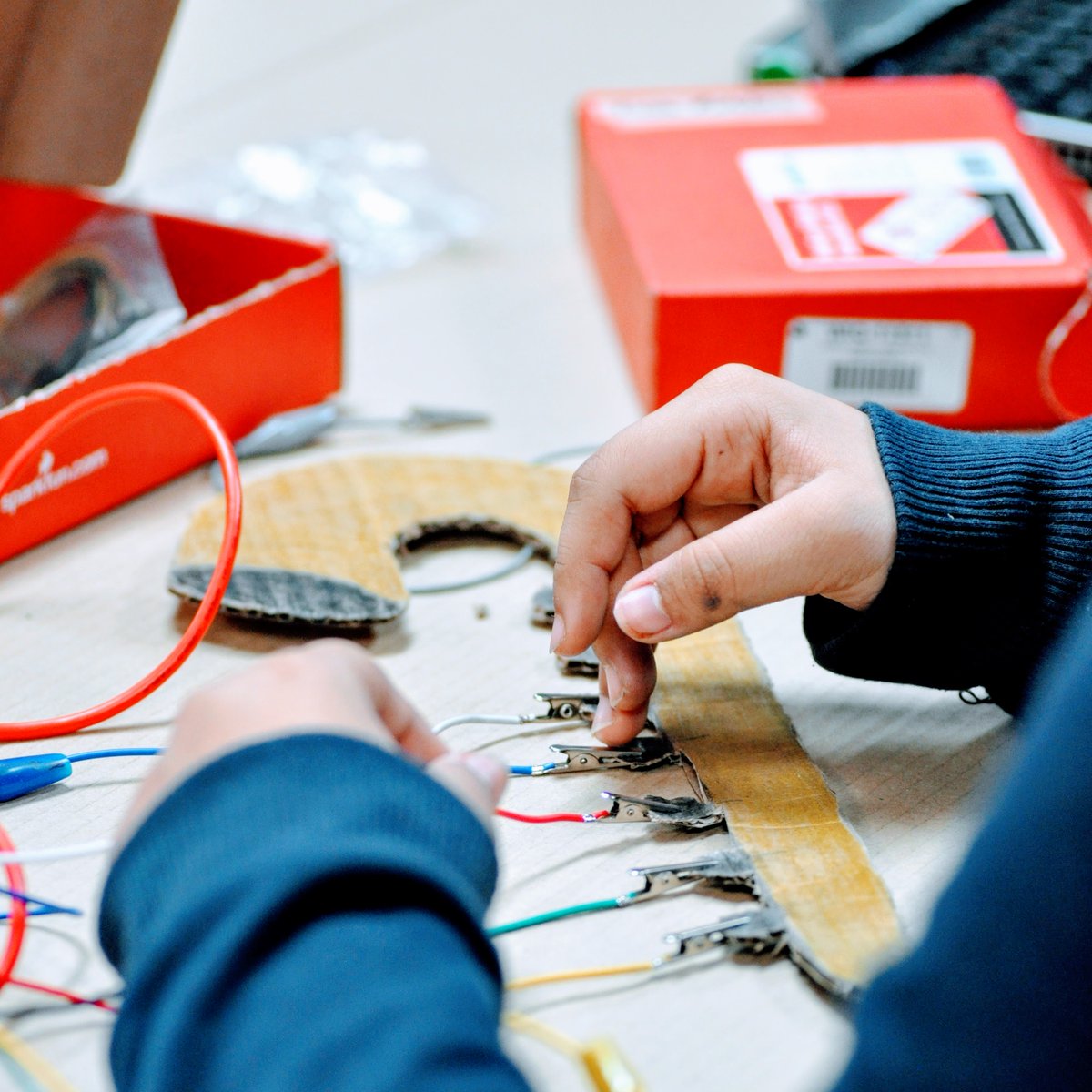
Art 120
Maker VISTAs Dan Mailman and Hannah Hahn continue curriculum and makerspace development with Art 120’s early elementary maker education rollout at Red Bank Elementary in Chattanooga. From equipment seeking and planning, lesson plan brainstorming, and case study drafting, these Maker VISTAs are collaborating with teachers and partners to simultaneously launch program implementation and evaluation processes.
Hannah has also facilitated the visit of New Zealand-born artist Konstantin Dimopoulos to Chattanooga, to bring his Blue Trees Project (an ecological art initiative) to Hamilton County schools. This artistic perspective highlights turning something seemingly ordinary or everyday into an expression of imagination—a tenant aligned with Art 120’s Art Bike and Art Car welding projects. Meanwhile, Dan experienced a “eureka” moment in his curriculum development work when he realized that he could frame his Python curriculum in a espionage-fantasy story. He has tentatively titled his book on programming, “A Spy in the Land of Python.”
Lighthouse Community Charter School
Maker VISTAs Tobie Irvine and Gary Hall devoted concentrated time and energy this past month, striving to ensure the success of the Design Making Experience, a two-day workshop intended to show LCCS teachers and outside educators how to integrate making through hands-on experience. Gary and Tobie also continue to develop, document and practice mentorship strategies, working with high school students on maker-centered projects as means of both inspiration and information.
Individually, Gary is excited to be working on LCCS’ technology initiative, investigating and identifying processes to update and technology to utilize in classroom curriculum. Gary is also thrilled to again partner with the Exploratorium on a project initiative to demonstrate the potential for agency in learner-driven, maker-centered education.
Drew Charter
At Drew Charter School in Atlanta, GA, Maker VISTAs Greg Robbins and Caitlan Cole hosted their second Maker Night for students, families and the local community. Teaming up with partners at Georgia Tech’s Center for Education Integrating Science, Mathematics and Computing (CEISMC), the Maker VISTAs were able to offer participants the chance to solder animal sculptures out of recycled electronics components. These Maker Night events provide students and parents an opportunity to utilize and explore the Drew Charter makerspace, while also experiencing the maker community woven by Drew’s STEAM Dream team, furthering buy-in, benefit, and sustainability.
Over the past month, Greg and Caitlan noted increased traffic in their makerspace after school and on weekends. While pleased with this development, they wanted to ensure that any students and families who might be uncertain as to how to use the space or start a project had resources that could guide them. With the support of their makerspace manager, Caitlan and Greg developed “ready to make baskets” containing the materials and instructions for a few simple making projects. They started with an “Origami Ready To Go Making Basket” and a “Soldering Sculpture Ready to Go Making Basket,” and are in the process of preparing more. Now when visitors venture to the makerspace, they can choose one of the guided basket activities to launch their makerspace experience.
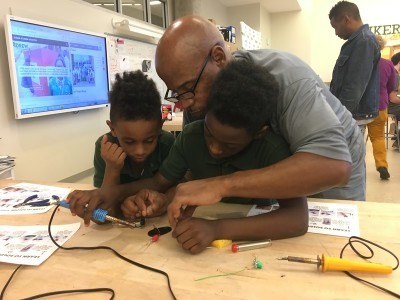
Maker Moments is a monthly series that profiles the achievements and capacity-building work of our Maker VISTA team. Check back next month for magnificent moments in making!
